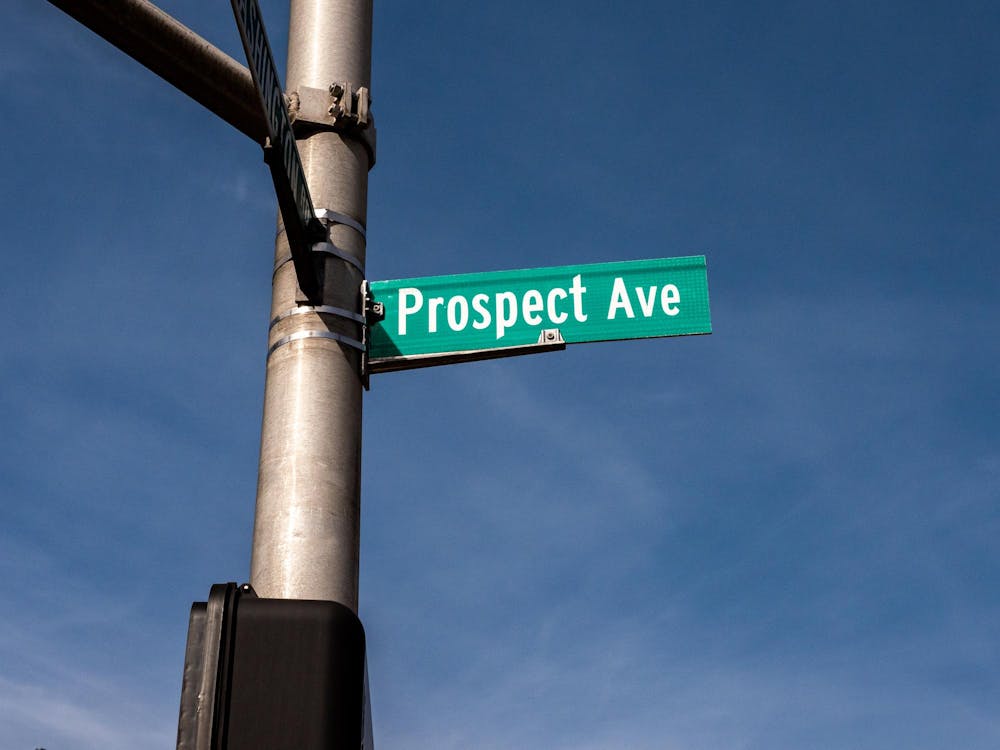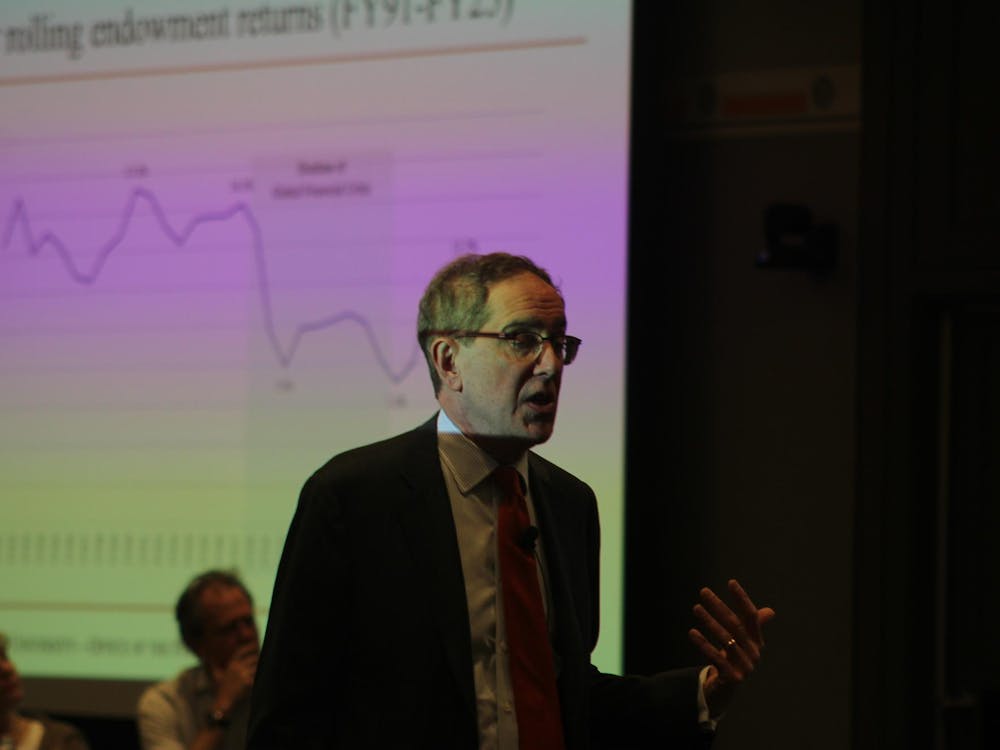Over 200 students, faith community leaders and Princeton residents joined in vigil on Tuesday at Palmer Square for Michael Brown and all victims of police brutality. Representatives of local churches, elected officials and University trustees gave remarks.
This vigil occurred a day after a grand jury ruled that Darren Wilson, a policeman from the suburbs of St. Louis, Mo., would not be facing charges in the August shooting death of 18-year-old African-American Michael Brown. Wilson had shot Brown multiple times in the middle of the day on a residential street after an alleged altercation between the two.
Hundreds of University students also protestedagainst the rulingsoon after midnight on Tuesday.
“Whether or not there was a legal indictment, America has been indicted morally and spiritually, and we as a nation need to take that seriously,” the Rev. Bob Moore said. Moore is the Executive Director of the Coalition for Peace Action and helped to coordinate this demonstration.
Dr. David Davis, president of the Princeton Clergy Association and senior pastor of the Nassau Presbyterian Church, said in his address to the crowd that America needs a higher level of justice for everyone.
“I came here today out of the weight that I experienced watching the Ferguson situation unfold," Davis said. "I believe there is underlying racism in the justice system."
Poet and former assistant professor at University of Pennsylvania Daniel Harris said that the Michael Brown situation was a “rape of the due process” and that black youths are becoming “vulnerable, ripe targets for practice.” Harris called for legislation mandating police officers to wear cameras while on duty, which he referred to as “Mike Brown laws.”
Harris noted that 10 years ago, an "infamous" case of racial profiling that took place on the New Jersey Turnpike compelled the state to mandate camera installments in police cars. After this law was passed, he said, instances of racial profiling went down dramatically.

“The police is setting a terrible example for the citizens," Harris added. "We need to end the new Jim Crow!”
Harris said that as someone with “white privilege,” he wished to share it among all people.
“For those of us who have it, I ask that you give away your white privilege,” he said.
Destiny Crockett ’17, an organizer of the Tuesday morning student protests, gave remarks along with five other students. Crockett, an African-American native of St. Louis, said that when the grand jury ruling came out she couldn’t call home because she didn’t know what to say.

“When I finally called my mother before class, she said that there were many people who can’t go outside because of the tear gas,” Crockett said. Crockett also challenged the media portrayal of Ferguson violence, indicating that the reality of black communities is far different.
Briana Payton ’17, who also spoke at the protests Tuesday morning, voiced her despair for continued racial profiling in this country.
“Our babies are dying. We shouldn’t have to scream ‘black lives matter’ in order for people to believe it in," she said. "Diversity is a beautiful thing."
Terrence Fraser ’16 reinforced her words, stating that although people may say that events like the grand jury ruling would never have happened if African-Americans had more representation or if more black people voted, voting in a system that is institutionally racist will not guarantee any improvement in African-Americans’ situation.
Vivianne Castillo, a University ministry fellow and Bible course leader of Princeton Faith Action, implored her audience never to forget the tragedy. Castillo noted that the University held a discussion for black students earlier that afternoon during which many black women expressed concerns for their safety.
“There’s apathy when it comes to the well-being of black Americans,” Castillo said indignantly.
The protest was primarily organized by the Coalition for Peace and Action, a grassroots, nonprofit organization based in Princeton. Moore explained that the event was initially planned last Saturday and would have taken place regardless of the nature of the verdict. Moore further explained that invitations were sent to a wide network of religious, political and community leaders and that the police were also cooperative.
Chantya Roberson, a first-year student in the Princeton Theological Seminary, said, “I came to the event because I feel a lot of pain. This current system is extremely flawed.”
Jeff Evans, a youth pastor from Dayton, N.J., said that he came to the event after seeing an announcement of the grand jury decision on Channel 12 News.
“What happened to this young man reminds me what could happen to myself. We are all very sad,” he said.
The protests began at 6 p.m. when the police closed off traffic to Palmer Square. During the demonstration, a middle-aged white man climbed atop a tiger statue amid fervent protests from the audience, eventually drawing police intervention.
Staff writer Jasmine Wang and associate news editor Paul Phillips contributed reporting.







